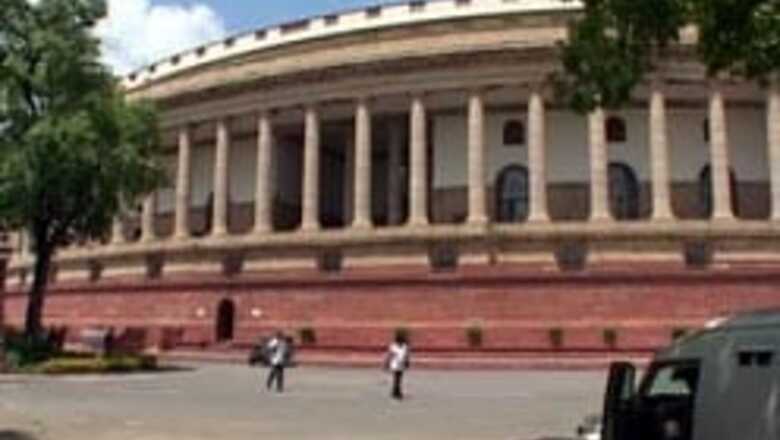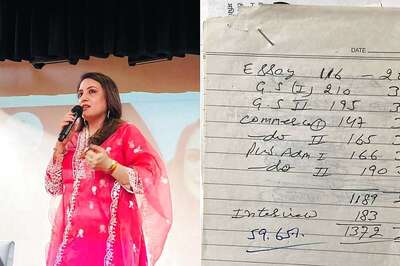
views
New Delhi: The next Parliament session, probably the last of the 14th Lok Sabha, will be held from October 17 to November 21, by which time the Indo-US nuclear deal is expected to go through all the processes.
The delay in the schedule prompted a sharp reaction from the Left which said "this was a clear subversion of democracy...to dovetail our Parliamentary schedule to the time table of the US Congress".
A decision to convene the session was taken at a meeting of the Cabinet Committee on Parliamentary Affairs, chaired by External Affairs Minister Pranab Mukherjee on Tuesday.
The five-week session will be the second phase of the two-day session, which saw the Manmohan Singh government winning the trust vote. It was dubbed as "tainted victory" by the opposition in the wake of alleged cash-for-vote scam.
The government convened the two-day session of the Lok Sabha on July 21 after Left parties withdrew their support to it on the Indo-US nuclear deal issue.
"Lok Sabha is not prorogued and it will be the continuation of the earlier session," Parliamentary Affairs Minister Vayalar Ravi told reporters after the meeting. He sidestepped questions whether it would be the last session of the 14th Lok Sabha.
The schedule for the session has apparently been fixed to accommodate Prime Minister Manmohan Singh's visit in September to UN for the General Assembly. The schedule has been arranged in such a way that there was no possibility of a winter session, which normally begins in November.
The session is expected to be held in the shadow of assembly polls in four states - Delhi, Madhya Pradesh, Rajasthan and Chhattisgarh. The term of the assembly in Jammu and Kashmir is also ending by the year-end.
The Left reaction on the schedule gave ample indications that the session is not expected to be a smooth affair.
The Amarnath land row, situation in the Kashmir valley as also cash-for-vote controversy are issues that have already agitated the Opposition.
"It is a legal question," Ravi said when asked whether the opposition could bring a no-confidence motion against the UPA government in the session, which is part of the two-day session held in July, which saw the confidence vote.
At the same time, he said there were many opportunities for the Opposition to raise. "If the opposition wanted to bring (no confidence) let them do so", he said.
Prime Minister Singh has already assured Parliament that he would come back to the House after all the processes - IAEA Safeguards agreement, waiver from NSG and approval by the US Congress - for the implementation of the deal are completed.


















Comments
0 comment